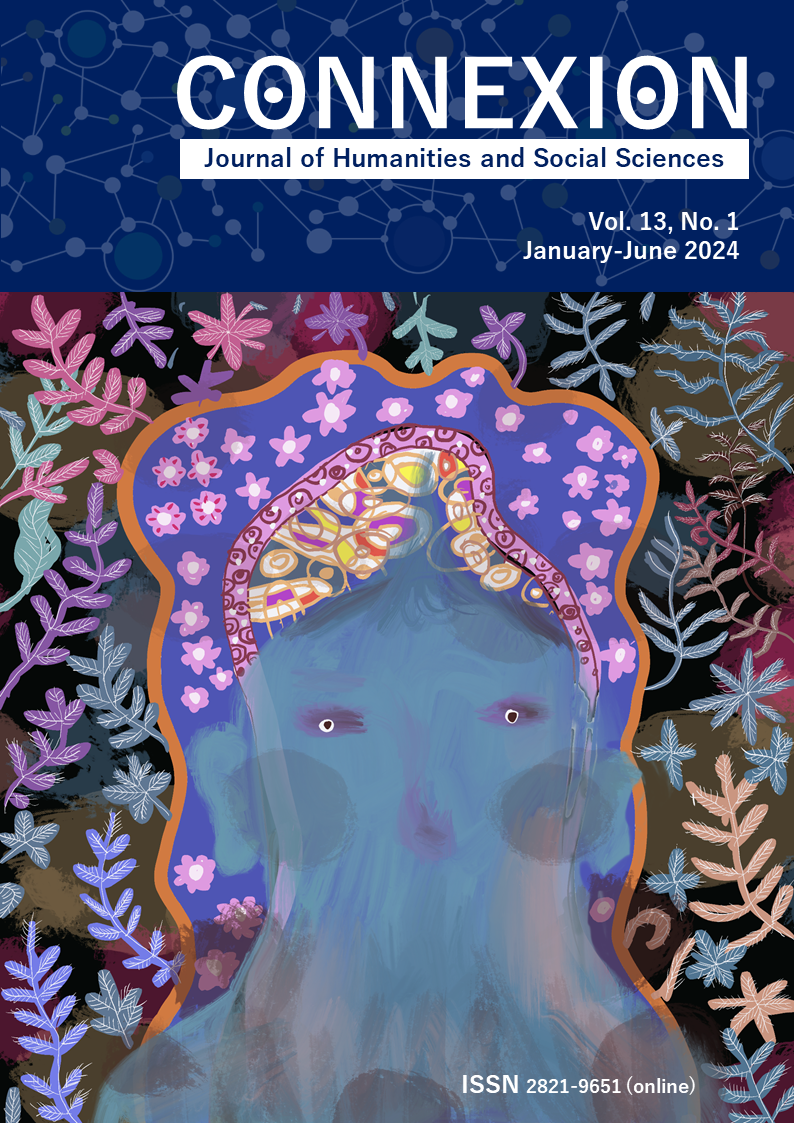The Relationship of Music and Society: Concept to Study, Influence of Social Structure and Social Change
Main Article Content
Abstract
The purpose for writing this article is to explain that “How does music relate to society” the results of the study can conclusion in 3 points: (1) The relationship of music and society. It is something that arises from the need for communication and building relationships among people in society. Social connections can occur in many ways. So, music is involved in creating those social relationships. (2) The influence of social structure. The fact that music is brought into being a part of society. So, music can therefore reflect the structure of society. The influence of social structure has also caused changes in music as well. (3) The power to change of society. The way that music reflects the structure of society, music therefore has social power as if it were the structure of that society. The social power that arises with music. It has been used to change society that is facing various problems in order to create a greater understanding of the relationship between music and society. The author gives examples of musical phenomena occurring in different regions in this explanation by inserting those phenomena into the contents of various parts of this article.
Article Details

This work is licensed under a Creative Commons Attribution-NonCommercial-NoDerivatives 4.0 International License.
Copyright
Connexion: Journal of Humanities and Social Sciences has an exclusive right to publish the accepted articles in any form. However, the author retains the following rights:
1. The right to the ownership of the article;
2. The right to use all or part of the article in his/her other works;
3. The right to re-produce the article for personal use or for use in the author’s organisation, in which case the author must obtain permission from Connexion: Journal of Humanities and Social Sciences;
4. The right to make copies of all or part of the work for educational use or for the author’s use in classroom teaching; and
5. The right to include the work (both the preprinted and printed versions) in an institutional repository.
References
Browning, G. (2014) Bob Dylan: The politics of influence, Popular Music History, vol. 8, no. 2, pp. 222-239. https://doi.org/10.1558/pomh.v8i2.222
Chuku, C. D., Chinda, C. I., & Amugo, F. (2016) Reggae music as expression of African culture in diaspora, Journal of The Faculty of Humanities, vol. 14, no. 2, pp. 229-243.
Elbourne, R. (1976) A mirror of men? Traditional music as a reflection of society, The Journal of American Folklore, vol. 89, no. 354, pp. 463-468. https://doi.org/10.2307/539297
Engel, C. (1866) An Introduction to the study of national music: Comprising researches into popular songs, traditions, and customs, Longmans.
Garratt, J. (2018) Music and politics: A critical introduction, Cambridge University Press. https://doi.org/10.1017/9781139505963
Harris, A. (2023) The power of music and how it shapes society, Available: https://neonmusic.co.uk/the-power-of-music-and-how-it-shapes-society/ [30 September 2023]
James, K., & Walsh, R. (2019) Religion and heavy metal music in Indonesia, Popular Music, vol. 38, no. 2, pp. 276-297. https://doi.org/10.1017/S0261143019000102
Quora. (n.d.) In what ways does music reflect and shape culture, Available: https://www.quora.com/In-what-ways-does-music-reflect-and-shape-culture [5 October 2023]
Lomax, A. (1968) Folk song style and culture, Routledge.
McAfee, C. S. (2022) Change in traditional Irish music: Issues of decolonization and authenticity, Master’s thesis, San Francisco State University. https://doi.org/10.46569/20.500.12680/r781wp608
Merriam, A. P. (1964) The anthropology of music, Northwestern University Press.
Moberg, M. (2012) Religion in popular music or popular music as religion? A critical review of scholarly writing on the place of religion in metal music and culture, Popular Music and Society, vol. 35, no. 1, pp. 113-130. https://doi.org/10.1080/03007766.2010.538242
Anonymous. (2023) How does music affect society, Available: https://www.accsc.ca/Blog/13091460 [9 May 2024]
Rinjami, R., & Bestari, P. (2019) ‘Harmony Choir: Strengthening nationalism through the activity of singing national song’, in Proceedings of the 2nd Annual Civic Education Conference (ACEC 2019), pp. 267-272, Atlantis Press. https://doi.org/10.2991/assehr.k.200320.052
Saenlawan, P. (2022) Human rights claims and equality through 5 timeless songs by Bob Dylan (การเรียกร้องสิทธิมนุษยชน และความเท่าเทียมผ่าน 5 บทเพลงอมตะตลอดกาลของ ‘Bob Dylan’), Available: https://www.vogue.co.th/lifestyle/article/bob-dylan-5-classic-songs [7 October 2023] (in Thai)
Sailo, V. (2018) Remapping song: A study of select protest songs by Bob Dylan, Master’s thesis in English, Mizoram University, India.
Stanborough, R. J. (2020) The benefits of listening to music, Available: https://www.healthline.com/health/benefits-of-music [7 October 2023]
The American Social History Project. (2018) What can songs tell us about people and society, Available: https://historymatters.gmu.edu/mse/songs/question5.html [10 October 2023]
Thompson, B. C. (2014) ‘Theory, nationalism, and music’, in E. Zeynep Güler (ed.), New opportunities and impasses: Theorizing and experiencing politics, pp. 206-213, DAKAM Publishing.
Tran, K. (2023) How music is a reflection of society, Available: https://melodystudio.net/2023/05/03/how-music-is-a-reflection-of-society/ [3 October 2023]
Wannapakho, C., Chantaloeng, S., & Khampha, K. (2022) The social and cultural reflections in the mixed Thai music literature (ภาพสะท้อนทางสังคมและวัฒนธรรมที่ปรากฏในวรรณกรรมเพลงไทยแนวผสมผสาน), Journal of Humanities and Social Sciences Loei Rajabhat University, vol. 4, no. 2, pp. 54-67. (in Thai)


